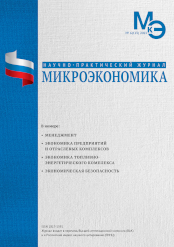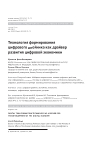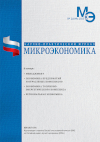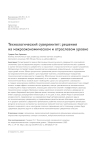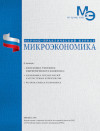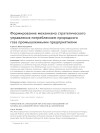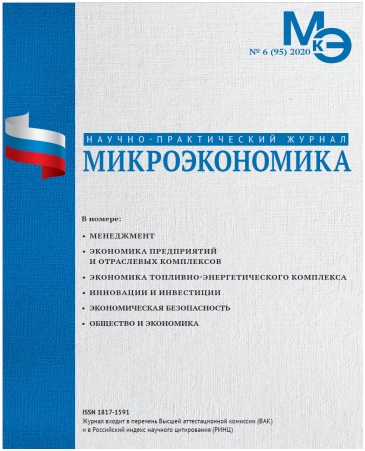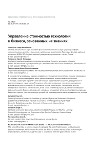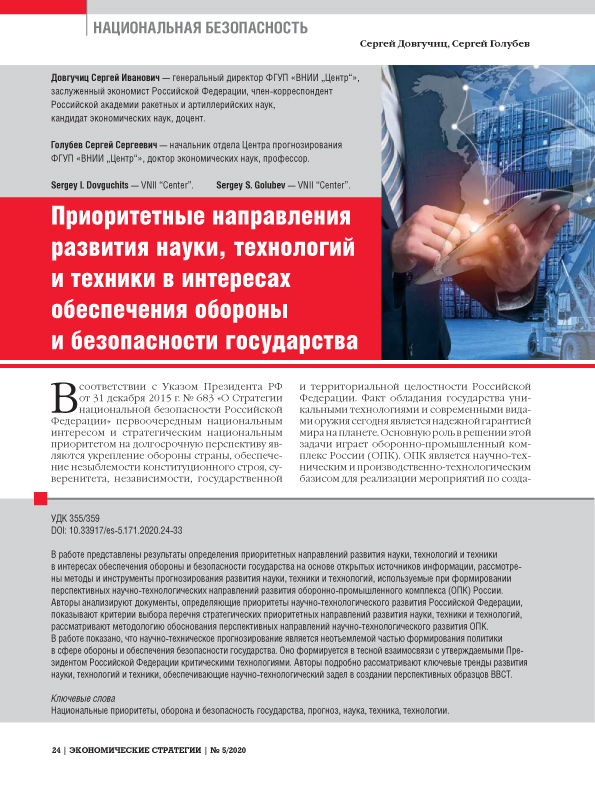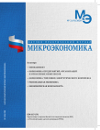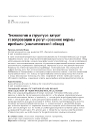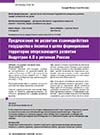Macrostructural Analysis in Research Economic and Technological Changes
DOI: 10.33917/es-4.196.2024.62-73
The paper reveals the content of the method of structural analysis as a basic approach in economic research, used in the study of economic changes. The purpose of the study is to demonstrate the areas of application of structural analysis and its part — macrostructural analysis, with outputs for the study of technological development and the formation of a strategy for economic policy and development. The methodology consists of empirical structural analysis, comparative method and taxonomic approach. The overall result can be considered the identified areas of application of structural analysis in the macroeconomic part of its application, the possibilities and mistakes of applying macrostructural analysis to the study of economic growth and structural transformation of the economy. Let us note that many issues of the application of macrostructural analysis in economic science have been poorly studied. Often in studies it is replaced by the general method of structural analysis, which is reduced exclusively to the assessment of “input-output”, the structure of aggregate demand and production distributed across economic sectors. In fact, structural analysis is much broader, extends to micro and mesoeconomic objects of the economy, and is suitable not only for correcting current macroeconomic policies, but also for developing strategic plans for economic development and carrying out economic changes (reforms). An interpretation of changes within the framework of the “old — new” technologies structure is given, as well as proposals for taking into account technological development as an important condition for carrying out the structural and technological modernization of Russia.
References:
1. Shumpeter Y.A. Teoriya ekonomicheskogo razvitiya. Kapitalizm, sotsializm i demokratiya [Theory of Economic Development. Capitalism, Socialism and Democracy]. Moscow, Eksmo, 2007, 864 s.
2. Nort D. Ponimanie protsessa ekonomicheskikh izmeneniy [Understanding the Process of Economic Change]. Moscow, Vysshaya shkola ekonomiki, 2010, 256 p.
3. Barr R. Politicheskaya ekonomiya [Political Economy]. V 2 t. Moscow, Mezhdunarodnye otnosheniya, 1996.
4. Sukharev O.S. Strukturnyy analiz ekonomiki [Structural Analysis of the Economy]. Moscow, Finansy i statistika, 2012, 216 p.
5. Dedov L.A., Botkin O.I. Indeksnyy makrostrukturnyy analiz ekonomicheskoy dinamiki. Osnovnye ponyatiya i priemy makrostrukturnogo analiza [Index Macrostructural Analysis of Economic Dynamics. Basic Concepts and Techniques of Macrostructural Analysis]. Ekaterinburg, Izd-vo UrO RAN, 2013, 111 p.
6. Sukharev O.S. Strukturnye issledovaniya sovremennoy rossiyskoy ekonomicheskoy shkoly: osnovnye podkhody i perspektivy [Structural Research of the Modern Russian Economic School: Main Approaches and Prospects]. Vestnik Permskogo universiteta, 2022, vol. 17, no 1, pp. 5–26.
7. Leont’ev V.V. Izbrannye stat’i [Featured Articles]. Saint Petersburg, Nevskoe vremya, 1994, 366 p.






